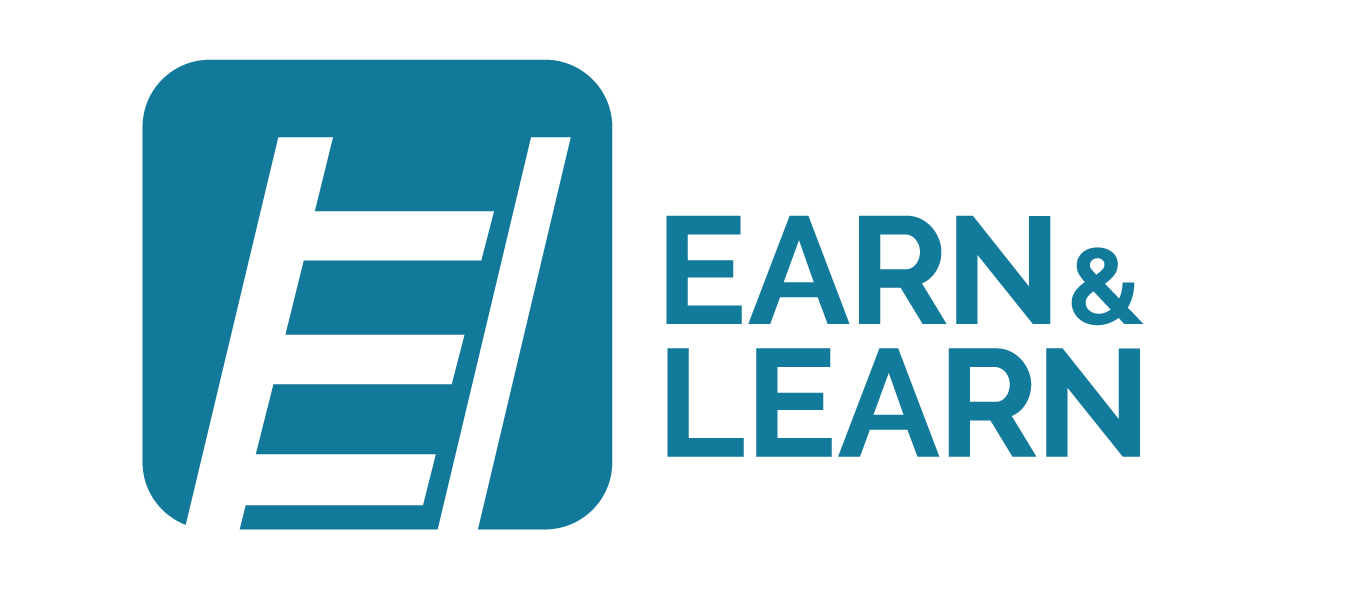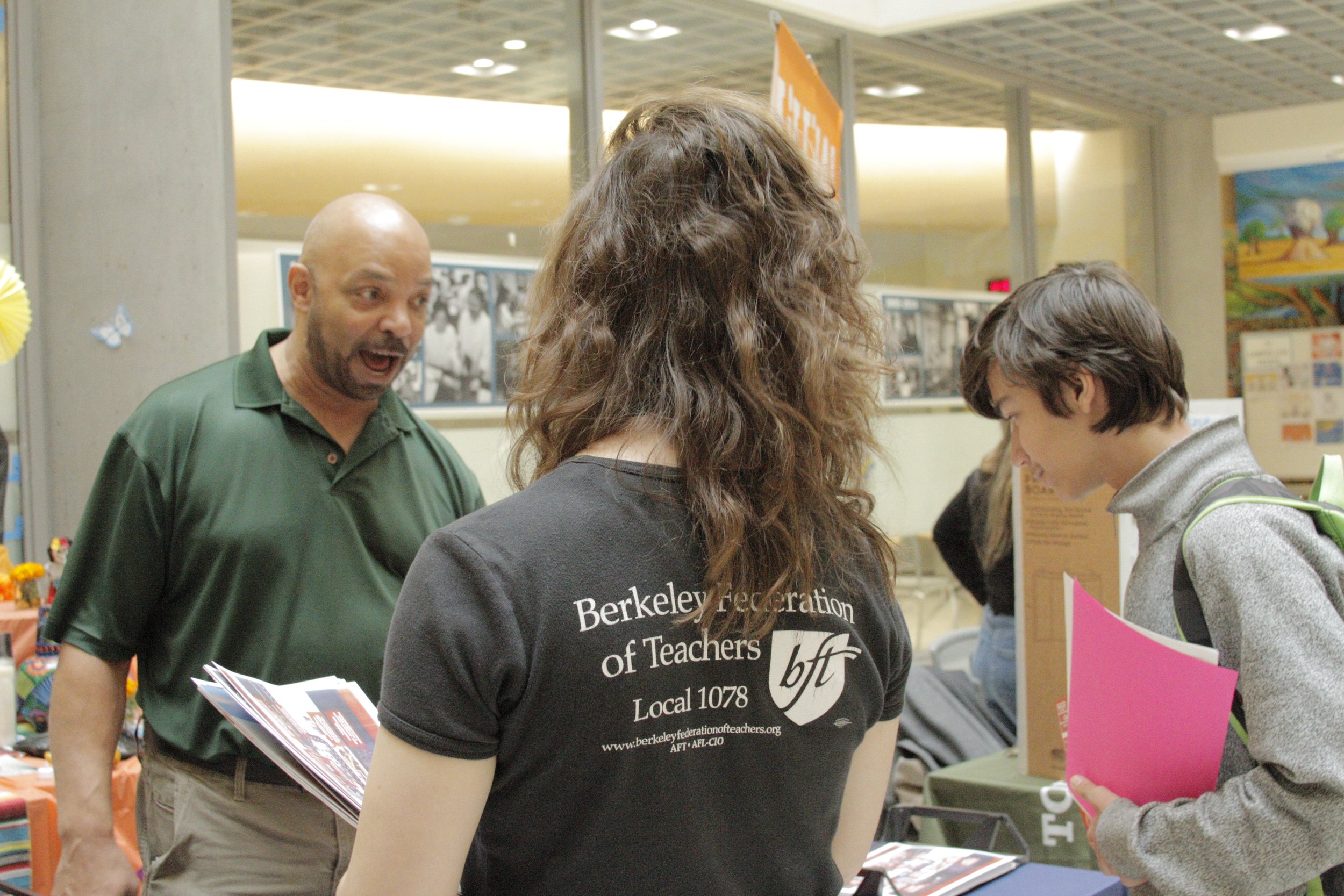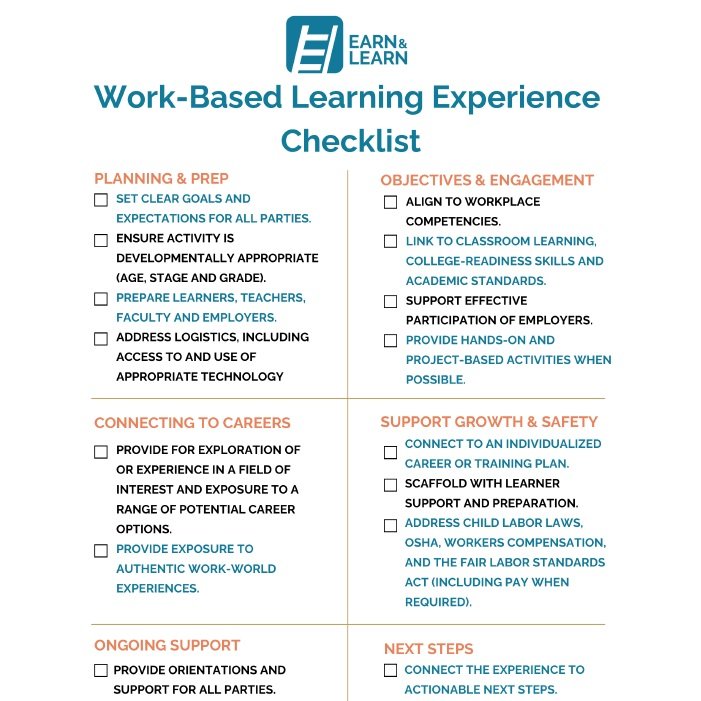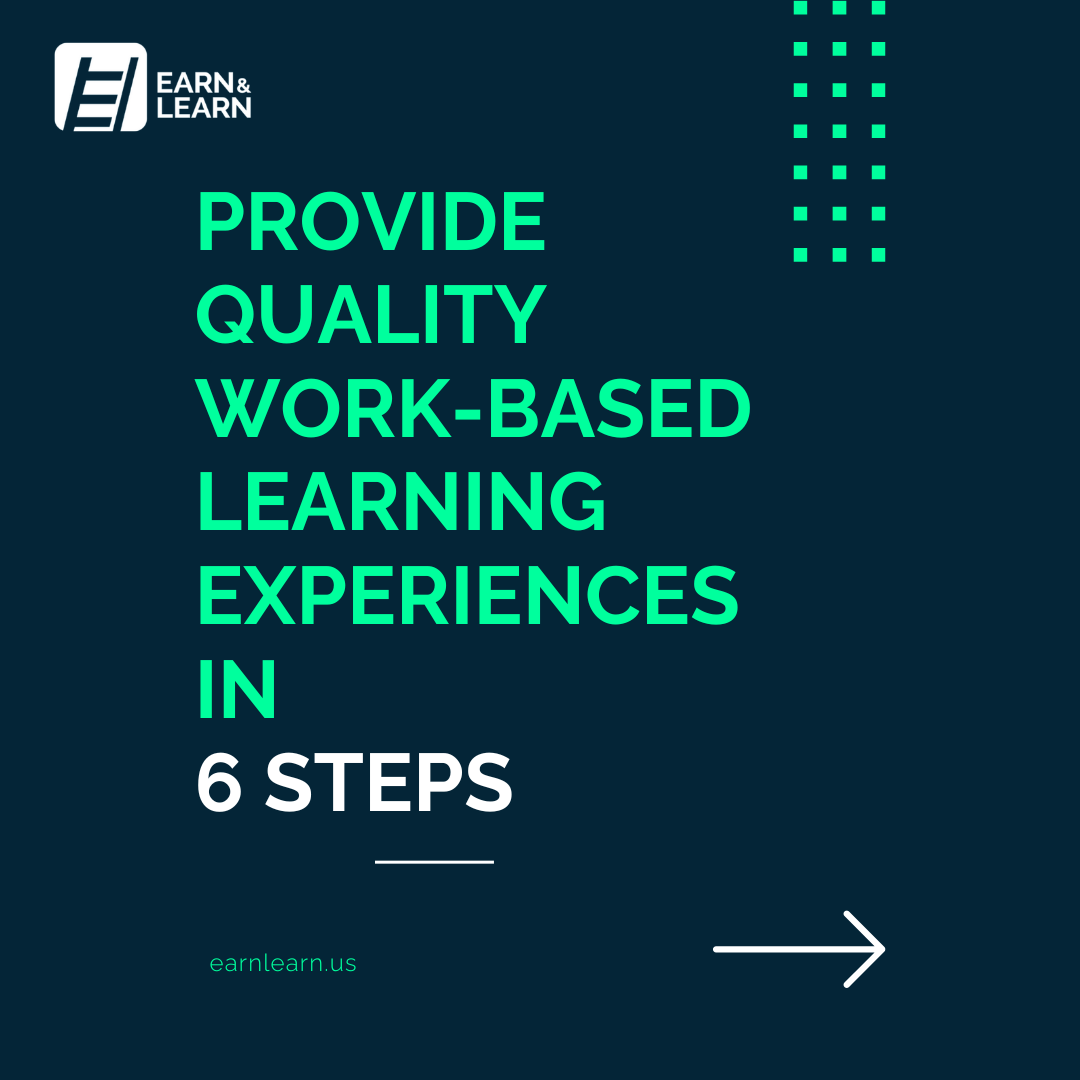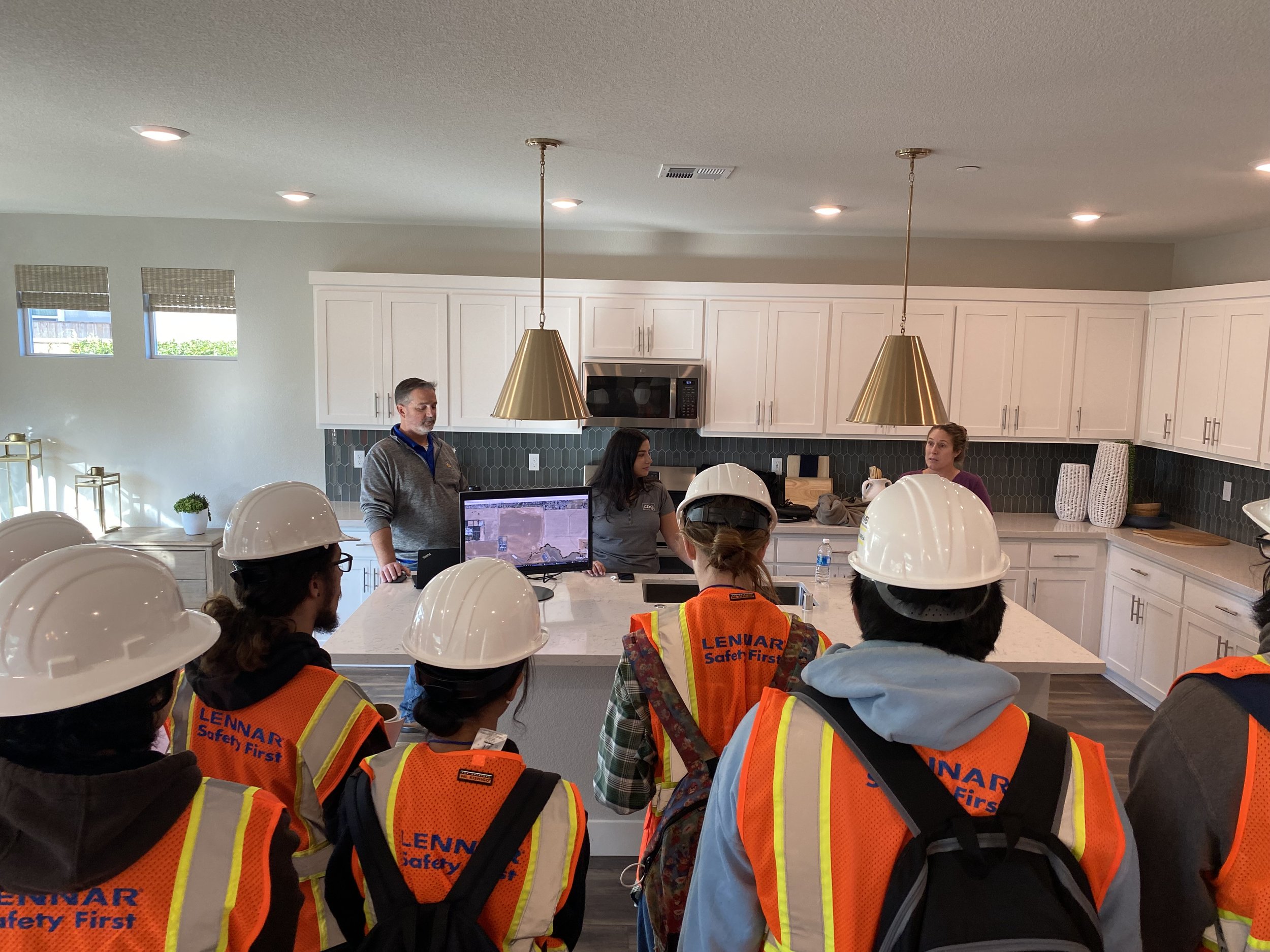
Work-Based Learning Toolkit
Welcome to the Earn & Learn Work-Based Learning Toolkit
This toolkit is designed to be a guide for all educators and employers who are just getting started with work-based learning, AND for anyone who is well into their WBL program. It is here to provide support and information as you bring equitable and quality WBL experiences to your learners.
Overview
-
Work-Based Learning (WBL) facilitates meaningful connections between students, adults, and local businesses, fostering authentic real-world work experiences.
It is an instructional strategy that:
• Connects what students are learning in class with the world of work
• Involves interaction with business partners
• Provides students with career awareness, career exploration, and career preparation
• Includes a continuum of experiences
• Aligns with intentional student learning outcomes
• Prepares students for success in postsecondary education and careers
• Benefits the learner, the business partner, and the school
-
Youth - K-12 students or recent high school graduates who have not yet earned a college degree and/or are struggling to move beyond low-wage jobs.
By providing a structured and supportive environment, these young individuals can acquire valuable skills and experiences that enhance their future.
Adults - individuals within the community aspiring to advance their careers or secure full-time employment; currently employed in roles misaligned with their training or financial requirements; and those reintegrating into the workforce.
-
Make direct connections between classroom learning and real world applications
Build personal ownership of learning by connecting hands-on experiences to individual career goals
Develop college and career-ready skills
Develop and practice positive work-related habits and attitudes
Increase motivation to stay in school, earn a high school diploma, and increase postsecondary options.
Develop and work toward achieving college and career goals during high school
Improve post-graduation employment opportunities
Secure part-time employment and financial support for postsecondary education
Establish professional contacts for future employment, mentoring, and networking
-
Make education more valuable to learners
Expose learners to multiple opportunities
Clear connections of core academic and pathway/program courses to college and career applications
Increase motivation to stay in school and earn a high school diploma
Enhance ability to meet the needs of diverse learner populations through individualized and applied learning opportunities
Extensive relationships in the community through business partner and workforce board involvement
Professional development through partner engagement
-
Develop new projects and ideas with student assistance
Participate in the curriculum development process
Develop a pool of skilled and motivated potential future employees
Reduce training/recruitment costs
Improve employee motivation and retention
Support and improve educational programs
Increase interest in the company and industry by inspiring the future workforce
Demonstrate corporate social responsibility
Provide opportunities for employees to use their professional skills to benefit the community
-
High-quality WBL enhances the lives of its participants, reduces the unemployment rate, and allows community members to engage and invest locally.
In short, if we keep our talent in our communities instead of compelling them to find employment elsewhere, then we will see the benefits of learners reaching economic vitality and our communities thriving.
-
Work-based learning levels the playing field for all persons through exposure to and inclusion of groups that are often marginalized or left out altogether. WBL helps bring down the barrier to job-market entry for underrepresented populations, further closing both the equitability and skills gaps.
Career Development Continuum
All Earn & Learn community partners provide a sequenced continuum of career development activities and experiences that address Career Awareness, Career Exploration and Career Preparation. This is accomplished through the provision of a series of work-based classroom activities, community experiences and workplace exposure for all learners over time.
-
Learn about a wide variety of jobs and careers.
Career Mentoring: A Career Awareness activity in which a learner is matched one-on-one (or in small groups) with an adult professional to learn about potential careers and related educational and training requirements.
Workplace Tour: A Career Awareness activity in which small groups of learners visit a workplace, learn about the business, meet employees, ask questions and observe work in progress.
Guest Speaker: A Career Awareness activity in which learners listen to a presentation given by an adult professional to learn about the industry, career options within the industry and the specifics of particular occupations. Guest speakers may also support particular academic concepts with real-world applications.
-
Explore careers of interest and plan for the future.
Career Exploration activities are designed to promote a deeper understanding of potential careers, and to provide opportunities for an investigation of a particular industry, career or occupation of interest.
In the workplace, Career Exploration activities include Informational Interviews and Job Shadowing.
-
Gain workplace experience education and training for a career of choice.
Career Preparation activities are designed to provide an in-depth discovery of a particular career, the development of occupational skills and promote an understanding of the education or training needed in a particular industry or occupation.
In the workplace, Career Preparation activities include Workplace Challenges, Internships, Work Experience (including Co-Operative Work Experience) and Apprenticeships.
Whatever you can bring to your learners on the continuum should always be based on your capacity to provide quality work-based learning experiences.
Download our free documents below to help guide you!
Watch the video below to see some of our WBL activities in action
-

For Educators
-
For Employers
-

Guides
